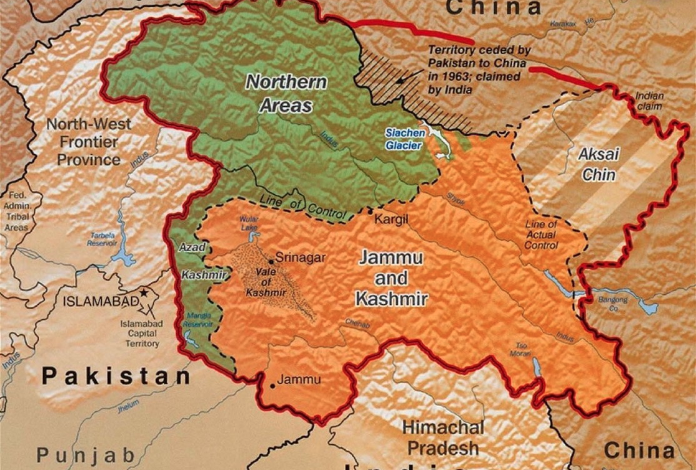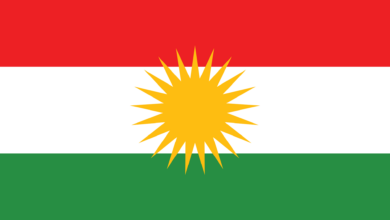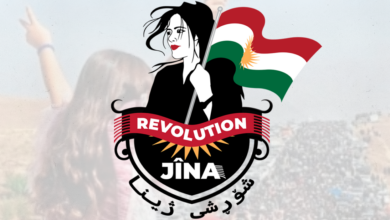Why National Sovereignty is Essential?
While Federalism and Democratic Confederalism Fall Short

The case of Kashmir presents a crucial lesson for understanding the limitations of non-sovereign political arrangements. Kashmir, a nation with its own distinct identity and national character, was set to gain independence in 1947 when it faced unofficial aggression from the newly established state of Pakistan. Kashmir’s ruler sought India’s protection, and India agreed to defend Kashmir only if it would dissolve its national sovereignty and join India as a quasi-confederal state.
The war between India and Pakistan over Kashmir began on Kashmiri soil and at the expense of the Kashmiri nation. After significant losses, in 1948, through a deceptive peace treaty, India and Pakistan divided Kashmir between themselves. Later in 1962, China seized a portion that was under Indian control during a military offensive.
Since 1947, three official wars have occurred on Kashmiri territory between the occupying powers, and what’s happening now is becoming the fourth official war, which is essentially about the division and occupation of Kashmir by these three occupying powers.
In reality, neither India nor Pakistan are nations or countries in the true sense, but rather two occupying states – one Hindu and one Islamic – that Britain itself indirectly established through an engineered decolonization process and transition to neo-colonialism, in a manufactured complex under Gandhi’s leadership, based on state-building for Hinduism and Islam with the purpose of creating perpetual conflict.
Through this strategy, they prevented the emergence of genuine national identity and independence for dozens of large nations such as Punjab, Bengal, Tamil, Gujarat, Canada, Sindhi, Maithili, Odia, and Marathi. Currently, some of these nations have populations exceeding 200 million, and most have over 40 million people. Some of these stateless nations in India and Pakistan are larger than the Kurdish nation, although Kurdistan is known as the largest stateless nation in the world. Notably, none of these nations have faced denial and genocide like the Kurds, but most haven’t abandoned their dream of national independence either.
India is a federal country that defines itself in its constitution as a union of states, but in reality, all those that define themselves as states are merely quasi-autonomous provincial authorities rather than proper local governments. This is because in the administrative division between the central government and provinces, out of 161 administrative tasks, only 61 fall under provincial authority while 100 tasks, which seem to increase gradually, remain under central government control. This makes Indian federalism highly controversial and strengthens the belief that it is more of a unitary state than a federal one.
Under Indian law, according to Article 370, Kashmir was granted a distinct political status, allowing it to have its own constitution, quasi-state apparatus, and flag, somewhat similar to the “Kurdistan Region.” However, because India’s central government is strong, unlike the Kurdistan Region’s relationship with its center, Kashmir cannot act defiantly against the center, at least until recently.
Narendra Modi, the leader of the Hindu extremist party, gained power through democratic elections in 2014, with one of his campaign promises being the revocation of Kashmir’s Article 370 – undoubtedly an action rooted in Hindu chauvinistic ideology. Now, after five years in power, “democratic India” has given birth to fascism through democratic elections, and is attacking even the limited rights that Kashmir possesses, stripping away its local authority.
The primary reason Kashmir faces such Indian aggression and loses its local authority is that it surrendered its national sovereignty in 1947 to a state (India) that entered the world political arena with a model of democratic confederalism. Although it wasn’t truly federal from the beginning, the model between India and Kashmir was something between federalism and confederalism. It was federal because foreign policy, macro-economics, currency, and military were not in Kashmir’s hands, and confederal because it had its own flag, constitution, and state apparatus. However, even with this arrangement, democracy couldn’t protect it because it lacked the geopolitical immunity that national sovereignty and independence grant according to international law. Therefore, any dispute between Kashmir and India is considered India’s internal matter, removing everyone’s right to intervene and giving it to the central state, while Kashmir cannot take its case to the United Nations or international courts unless genocide has occurred.
Currently, Pakistan’s aggression is not based on legality but merely on force and religion. In reality, all three states – India, Pakistan, and China – are occupiers of the “Kashmir” country, and their conflict stems from rivalry between them.
This analysis leads us to several crucial conclusions regarding autonomy arrangements and national sovereignty:
1. Democracy, just as it gave birth to fascism in Germany, Italy, Spain, and now India when pregnant with chauvinism, could similarly birth fascist states in future democratic Iran, Iraq, Turkey, and Syria that could revoke all Kurdish achievements under federal and democratic systems. All these countries possess the means to do so.
2. In a world of predators, the only tool that can protect a nation from extinction and aggression is national sovereignty, which grants independence and ensures significant geopolitical immunity.
3. Identity wars and political-economic interests fought on the backs of stateless nations cause them the most damage and destruction. Undoubtedly, stateless nations bear the costs of war without gaining any benefits. For example, the eight-year war between two occupying states, Iran and Iraq, was fought on Kurdistan’s back, and Kurdistan paid the heaviest price.
4. The Kurdish strategy for liberation and achieving national sovereignty and independence must proceed through the strategy of dismantling Iran through coordination with other nations’ independence movements. Iran in state form has always been dangerous for other nations, and its existence means the dissolution of other nations. Therefore, Kurds and all other nations must unite in a common alliance to dissolve Iran. Kurds should assist in igniting independence movements of other nations.
The Kashmir lesson shows us that fifty years of autonomy-seeking movements, democracy-seeking for Iran, federalism, democratic confederalism, and workers’ government for Iran are concepts and understandings that divert the Kurdistan revolution from independence-seeking to non-independence-seeking.
In fact, it’s appropriate that in the Kurdistan revolution, the independence-seeking line, which desires national sovereignty, geopolitical immunity, and national state, should be separated from non-independence-seeking itself, whose all programs and strategies of struggle are directed at state models in occupying Iran and make no immunity demands for Kurdistan that would protect Kurds against occupiers’ economic, political, military, and cultural attacks. This was demonstrated by October 16, several years of salary and budget cuts by Baghdad, the closure of Kurdistan’s airports, Persian, Turkish, and Arab cultural attacks on the southern country, and many other examples.
Kurdistan must not be deceived again and, under the pretext of not having access to the sea or lacking necessary war power for liberation, slip into advocating federalism, democracy-seeking, confederalism, and socialism for Iran, Iraq, Turkey, and Syria. These anti-national programs have achieved no gains in the past century or this century. Therefore, blood should no longer be shed for the wrong path but should be given for the belief in independence, as Kurds only have this future ahead and will achieve liberation through proper national roadmap and strategy.
Final word: All left and right paths in Kurdistan can participate in the liberation revolution if they strive with a national essence and Kurdish identity for their goal of Kurdistan’s independence and national sovereignty in a united national apparatus and believe in establishing a secular model in independent Kurdistan.

